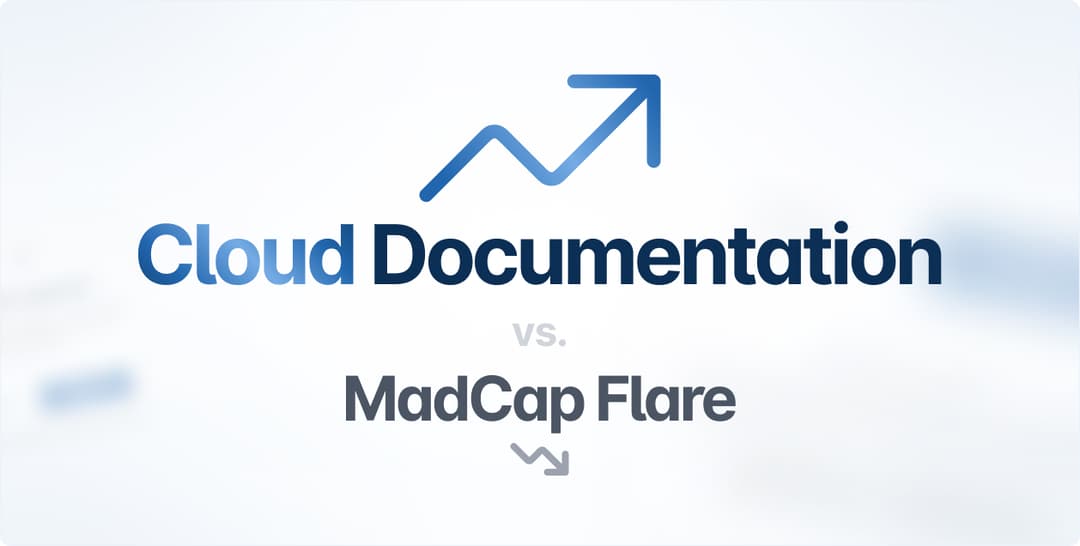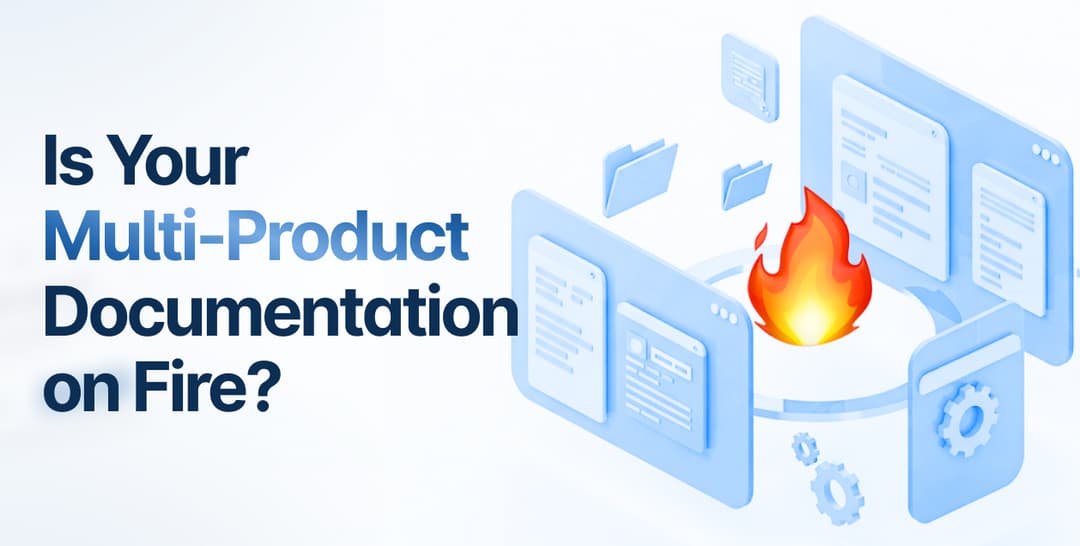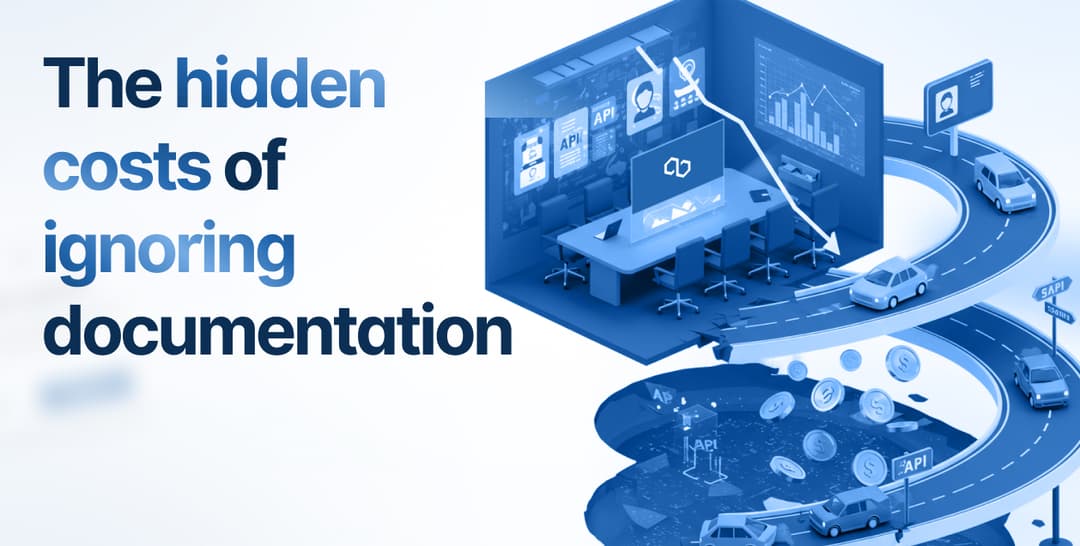If you’ve read any API documentation or looked up how to install some software, you were likely reading documents written by a technical writer.
Writers who create technical documentation are tasked with composing informative and helpful texts that facilitate the use of software products.
Their job is translating complex, technical concepts into plain, easily-understandable English.
However, to write this documentation, technical writers must be highly informed about the software product and equipped with extensive and detailed insights.
In other words, they need to possess thorough product knowledge. If you’re unsure what this means, keep reading—we’ll explain.
What Is Product Knowledge
To be a technical writer, you must first know what you’re writing about.
Imagine you’re tasked with writing a getting started or setup guide—you’d have to be familiar with the software’s onboarding flow.
Troubleshooting instructions are another good example. Writing troubleshooting advice is only possible if you know how the software works inside and out.
Otherwise, you simply can’t provide quality guidance.
This detailed product knowledge is what enables technical writers to compose helpful and informative articles. Without it, the documentation would likely be inaccurate.
In fact, Tom Johnson, a Senior Technical Writer at Google, listed product knowledge as one of the three pillars of technical writing. Have a look:
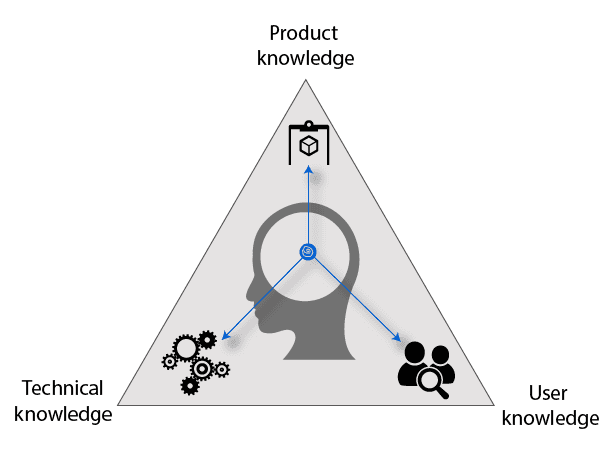
Source: I’d Rather Be Writing
Along with technical knowledge and user knowledge, product knowledge is essential for first-rate technical writing.
Such an in-depth understanding of a software product will lead to excellent documentation.
This topic was also discussed in a Quora thread, where Suyog Ketkar, a former Senior Technical Writer at Aveva, offered this advice:

Source: Quora
Ketkar states that a technical writer's most important quality is understanding the intricacies of the product and its technology. Put simply, he or she needs to possess product knowledge.
This is essential since technical writers can turn these insights into a more digestible format that both customers and internal teams can easily understand.
Their product knowledge is the key to teaching others about the software.
In other words, when technical writers hold product knowledge, they are the principal drivers behind product education.
The following statistic proves the importance of this ability:
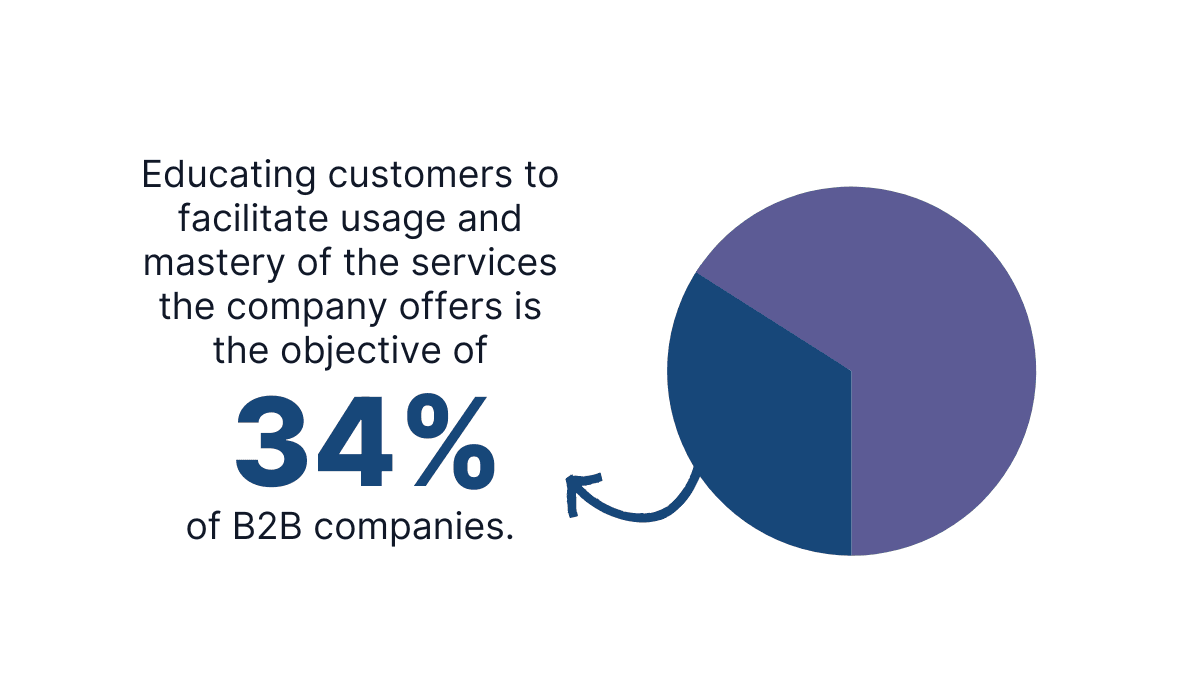
Illustration: Archbee / Source: Bussiness2Community
B2B businesses (and keep in mind that most SaaS companies fall into this category) strive to educate their customers about their products.
They want their users to master the product, utilize all possible features, and obtain maximum value.
To achieve this, your technical writers need to have excellent product knowledge.
If they’re well-versed in your software’s inner workings, they can easily convey this intelligence to others, ultimately improving the way they use your product.
The Importance of Product Knowledge in Technical Writing
Product knowledge is what fuels technical writing. As long as the author is well informed about the product, their documentation will be beneficial and informative.
One Reddit user echoed this sentiment, summarizing their role as follows:

Source: Reddit
Technical writing is full of invaluable information on software projects, such as feature descriptions, use cases, and more.
However, the prerequisite for writing such helpful intelligence is possessing enough product knowledge—that’s what gives the text its value.
The following sections will detail some ways in which product knowledge provides value on an organizational level and show why these insights are non-negotiable in technical writing.
Giving Teams More Confidence
Your customer-facing teams don’t have it easy.
Departments such as Sales, Marketing, Customer Support, and similar interact with your users daily and are tasked with promoting your products to them.
These departments should know your software inside and out to explain the benefits your software provides, highlight its best features, and answer the customers’ inquiries.
To accomplish all of this, they rely on your technical writers’ product knowledge.
The easiest way to equip your customer-facing teams with the necessary information is for technical writers to prepare insightful specialized documentation for customer-facing teams.
Armed with such well-crafted documents, these departments should have an easier time performing their duties and handling user interactions.
In other words, their confidence should grow.
Research confirms professional confidence is highly beneficial:
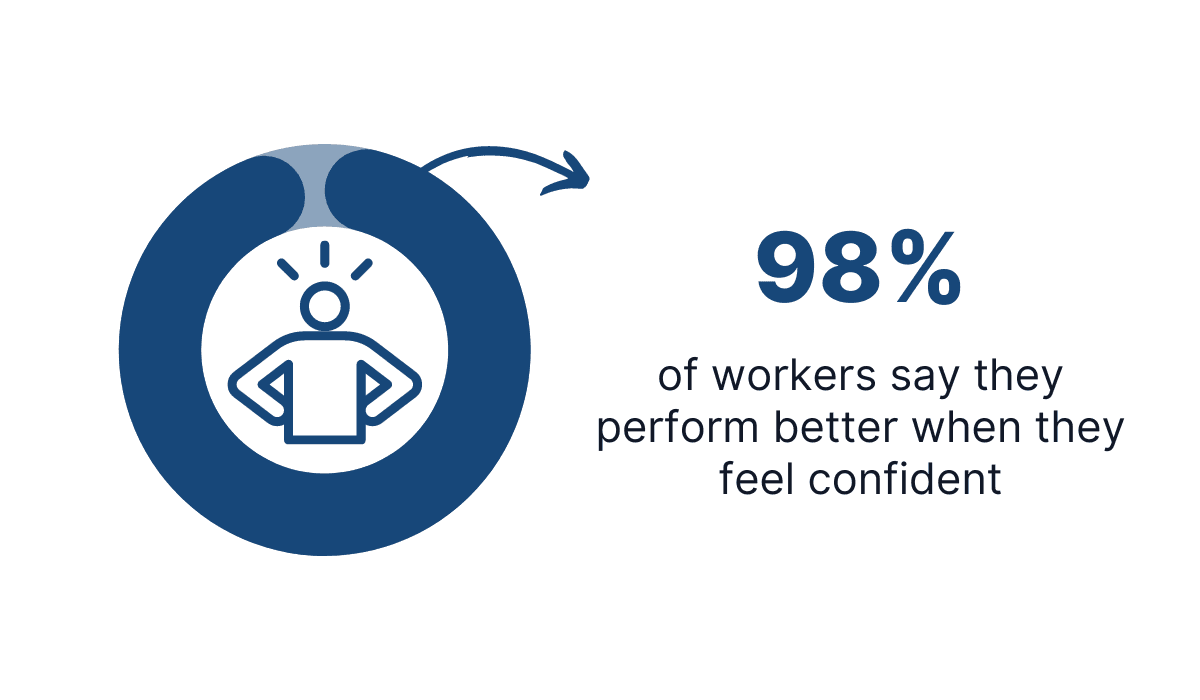
Illustration: Archbee / Source: Indeed
Confident employees are highly likely to perform better at work.
When your technical writers possess sophisticated product knowledge, they can increase their colleagues’ confidence and, ultimately, their productivity.
Assisting in Product Marketing and Sales
At the end of the day, your business’s success depends on your customers and the revenue you acquire from them.
To acquire this revenue, it’s worth investing in your Product Marketing and Sales processes. After all, that’s how customers learn about your product and become incentivized to purchase it.
However, Marketing and Sales are separate departments, despite their frequent collaboration, and misunderstandings aren’t unusual.
This is where technical writers come in.
They can leverage their product knowledge to create a single source of truth—official documentation both teams will use as a reference point to align their messaging.
Michael Redbord, VP of Customer Success at Regal, has also emphasized this:

Illustration: Archbee / Source: HubSpot
In other words, all promises made by Marketing and Sales must be proven true once the customer starts using the product.
To ensure this happens, the product knowledge of technical writers should be incorporated into all Marketing and Sales processes.
That way, there’s little room for error, and alignment is guaranteed.
Making It Easier to Onboard Customers
Any users interacting with your product for the first time will likely require guidance. After all, the interface, workflows, and features will all be completely new concepts to them.
This is why user onboarding— introducing your software to new customers—is an essential process.
It presents your product to newcomers, educating them on how to use your software best.
Here’s an example of an onboarding email, courtesy of Grammarly:

Source: Medium
As you can see, the onboarding email is highly informative, with short excerpts briefly explaining the tool’s most important features.
Such a helpful onboarding email is only possible with in-depth product knowledge.
Technical writers can capitalize on their understanding of the software to pinpoint the essential features and explain them to users.
In fact, this email was probably written either in collaboration with a technical writer or based on the documentation created by a technical writer.
Types of Product Knowledge a Technical Writer Needs
Software products are complex and require extensive observation and education to be fully understood.
There’s no quick and easy method to master a software product—their multifaceted nature demands that technical writers spend a fair amount of time learning about them.
Because of all these different components that make up your software, several types of product knowledge also exist.
They are listed in the visual below:
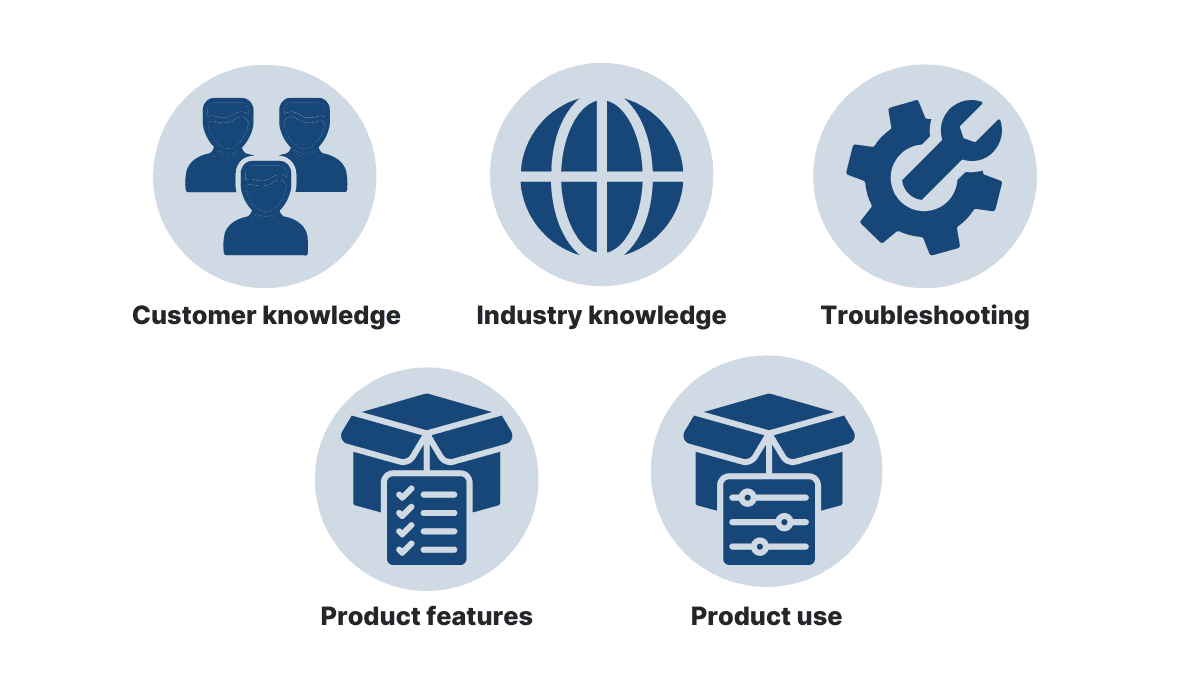
Source: Archbee
All five areas are necessary for a technical writer to acquire complete product knowledge of your software.
The following sections will outline each knowledge type and provide more details on their characteristics.
Customer Knowledge
Each software product is created with a specific target audience in mind.
For example, automation tools are directed toward QA teams, whereas technical writers typically use documentation tools.
As such, technical writers should familiarize themselves with their software’s customer profile and tailor their documentation toward these personas.
Each customer type will have different pain points, needs, and goals, and will require different documentation content.
To put it another way, documentation should be written with the end-user in mind and composed only with extensive customer knowledge.
Steve Jobs also commented on this:
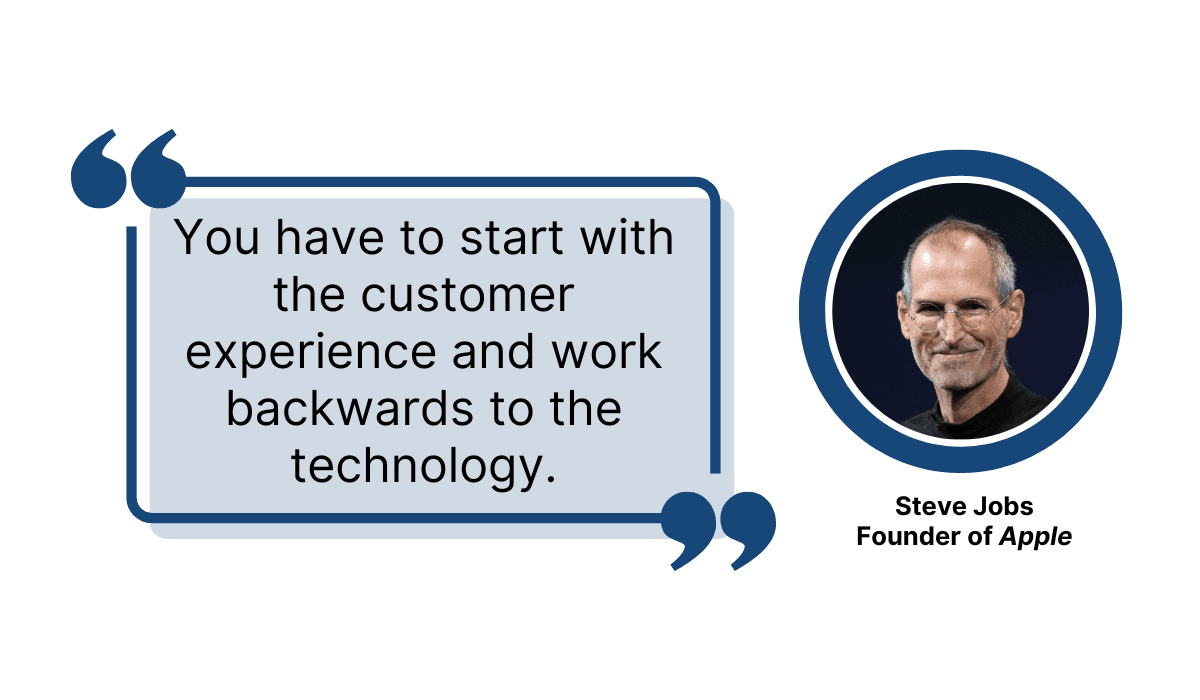
Illustration: Archbee / Source: iMore
His approach suggests beginning with the customer’s position, putting yourself in their shoes, and then writing the documentation to accommodate their needs and wishes.
The tactic makes sense, as the main objective of technical writers should always be assisting customers. However, to do so, they require extensive customer knowledge.
Industry Knowledge
No software product is created in a silo. In today’s interconnected world, there are countless software solutions, many developed with the same aim in mind.
For example, Asana and Trello are both task management tools.
Considering software's prevalence, technical writers should be able to place their software in a broader context and recognize its role in the software industry.
With this industry knowledge, they can then offer more detailed use cases and better explain the specific benefits their product offers, compared to competitors.
Furthermore, Deb Mukherjee, Head of Marketing at Staytuned, recommends cultivating industry knowledge for the following reason:

Illustration: Archbee / Source: Shopify
Technical writers should keep track of industry trends and the latest news, so they will know what users expect of them and how they’ll view their product.
For example, if your software is communications-based, it might be worth indicating if you’re considering a ChatGPTintegration.
Customers are sure to appreciate the expansive, industry-level information.
Product Features
Besides external product knowledge, such as customer and industry knowledge, technical writers should also possess significant internal product knowledge.
Internal product knowledge can be defined as information directly related to the independent software.
A great example would be the knowledge of product features, or information concerning the software’s functionalities and capabilities.
When learning about product features, it’s helpful to categorize the findings as follows:
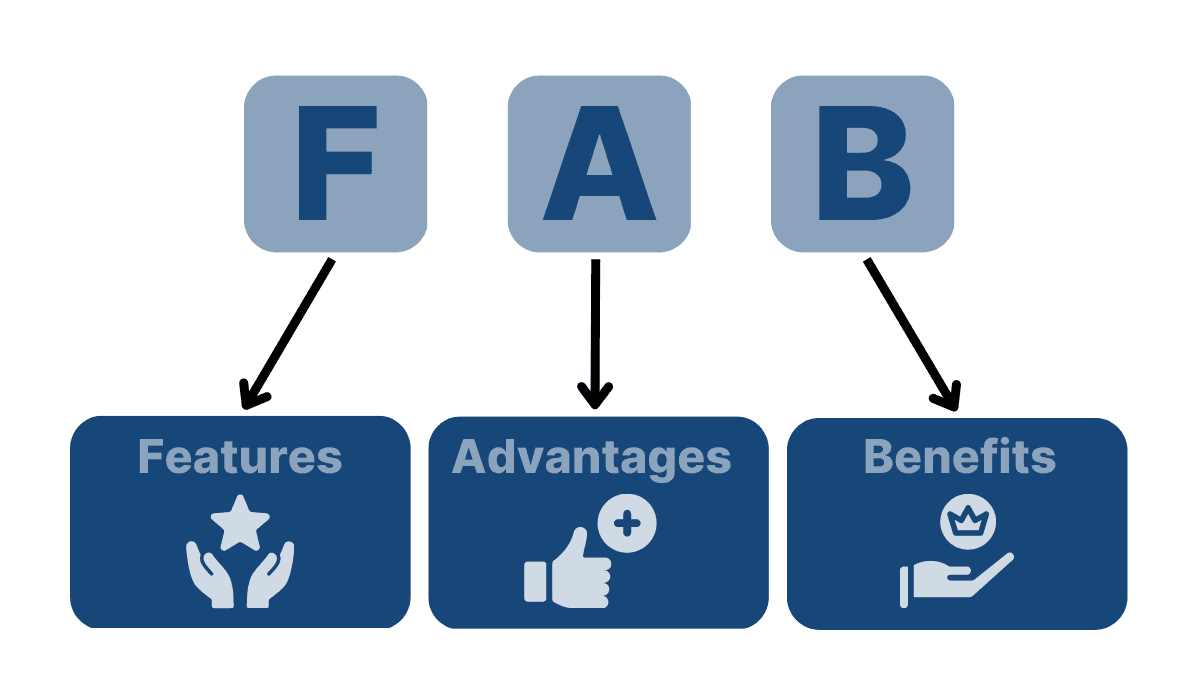
Source: Archbee
Features are the cold-cut, objective components and characteristics the product employs.
However, advantages refer to what these features can do. They illustrate the functionalities and actions these features generate.
Finally, the value users gain from the product, and its features are called benefits. This is arguably the most crucial aspect, as they carry the most worth for the end-user.
By relying on the FAB acronym, technical writers can easily define the particularities of each software facet. Furthermore, they’ll have a formula for describing each software product feature.
Product Use
Although product feature knowledge is vital for technical writers, there’s still more to learn to complete their product knowledge. For example, they should also be experts on product use.
Product use refers to the software’s specifications, customization abilities, and configuration process. In sum, the term encapsulates anything related to product usage.
The screenshot below is an excellent example of technical writing employing product use knowledge:
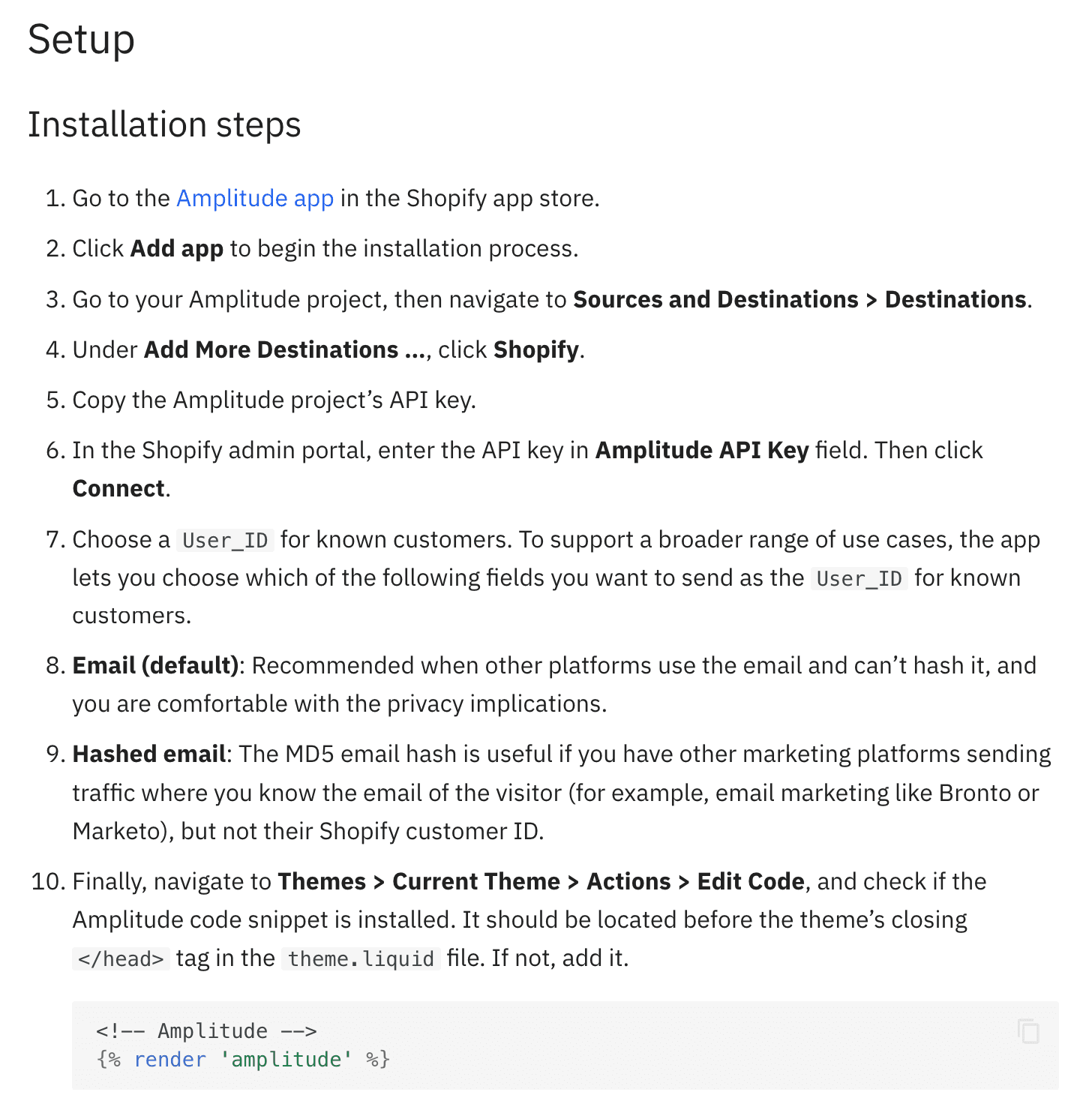
Source: Amplitude
This documentation details how to install Amplitude’s app with Shopifyclearly and straightforwardly. As such, it should be understood by most readers.
Technical writers should possess similar knowledge of their own product’s installation information, along with configuration and customization settings.
After all, these procedures make it possible for the software to be used by the customer.
In other words, if your technical writer lacks this knowledge, there’s a risk your end-users will never be able to use your product in the first place—they’ll simply lack the instructions to set it up.
Troubleshooting
Last but not least, the final product knowledge component technical writers should possess is extensive knowledge of troubleshooting.
As customers engage with the software, they’re bound to run into snags.
This can happen for a myriad of reasons, such as an unstable internet connection, a lack of OS updates, or even overloaded cookies and cache.
A technical writer’s job is to know how to resolve such issues, suggesting possible solutions to mitigate the damage.
Their problem-solving knowledge should make it possible for the users to fix their problems independently.
Here’s an example of some troubleshooting articles:
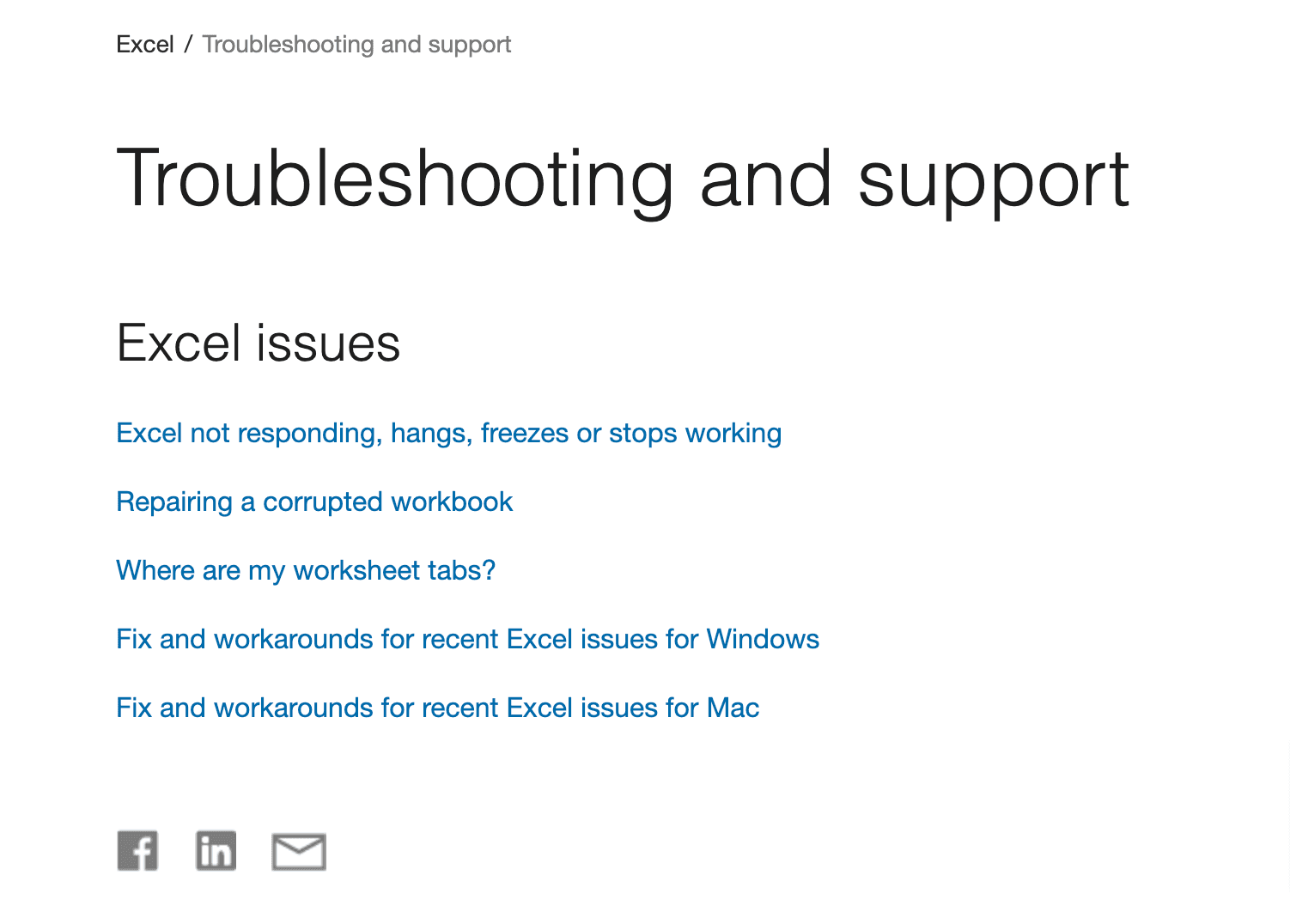
Source: Microsoft
Each article addresses a common problem within Microsoft Excel. These guides won’t address niche, situation-specific issues, but they cover the most common roadblocks users encounter.
Such troubleshooting knowledge is essential.
Otherwise, the number of customer support tickets will increase, as users won’t have self-service resources to resolve their issues independently.
In other words, troubleshooting guides empower customers to fix their problems on their own.
Conclusion
Product knowledge is essentially a prerequisite for technical writing.
Without an in-depth understanding of the software, technical writers will struggle to compose a high-quality document and possibly even spread misinformation.
As such, product knowledge should be a priority when composing software documentation.
After all, these are the texts both end-users and internal teams will consult whenever they have a question about the software and are often considered infallible.
Ensure your technical writers are thorough and accurate with their product knowledge. Their level of understanding also effectively determines how much your teams and your customers will know about your product.
Archbee was built with the needs of technical writers in mind. Explore its full set of features with our free 14-day trial.
Frequently Asked Questions
For a technical writer, product knowledge is a deep, working understanding of the software they document. It covers what the product does, who it’s for, how key features work, common workflows, edge cases, limitations, integrations, and typical issues. With this context, writers can turn complex concepts into clear, accurate guidance—everything from onboarding and setup to advanced use and troubleshooting. Many experts consider product knowledge a core pillar of excellent technical writing because it keeps documentation truthful, useful, and user-centered.

